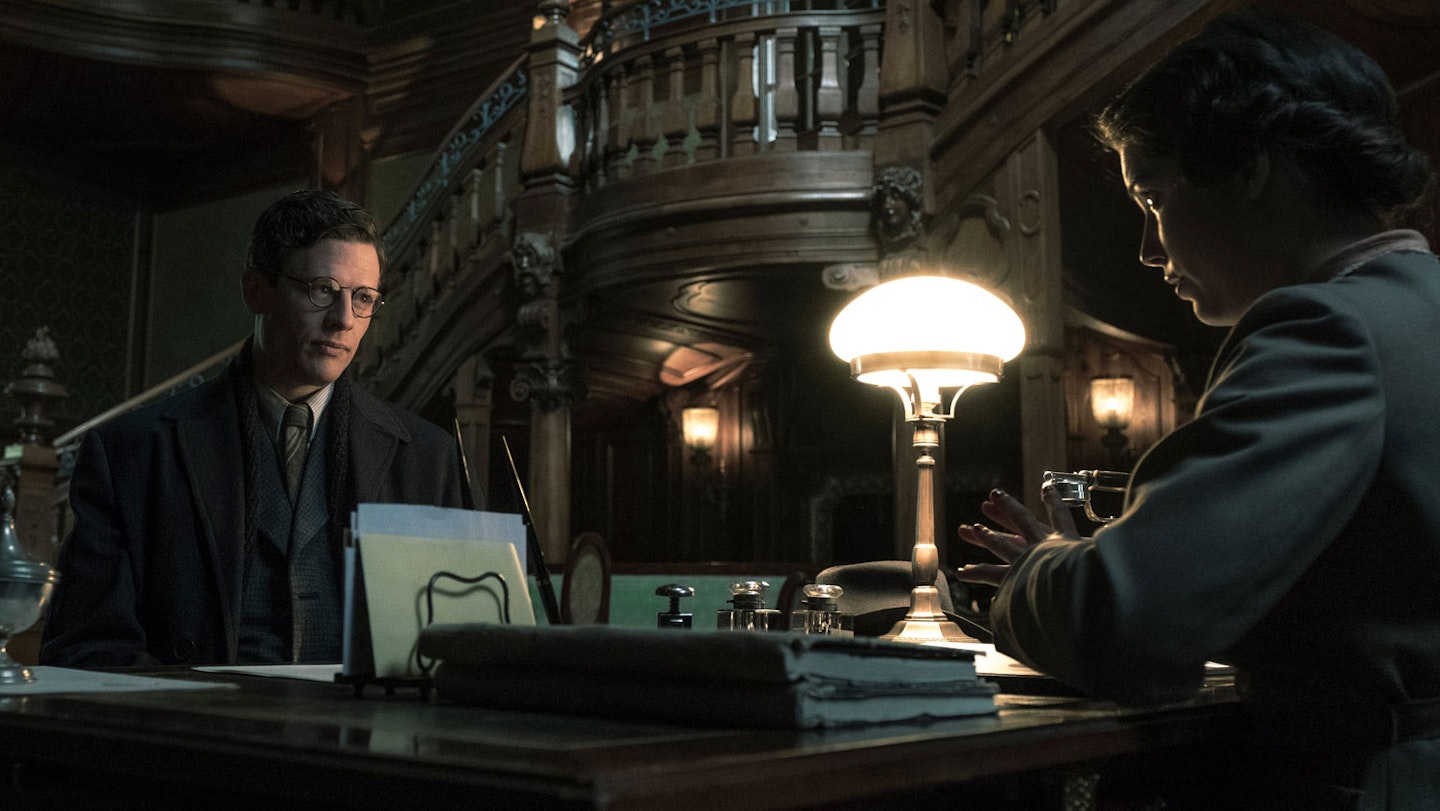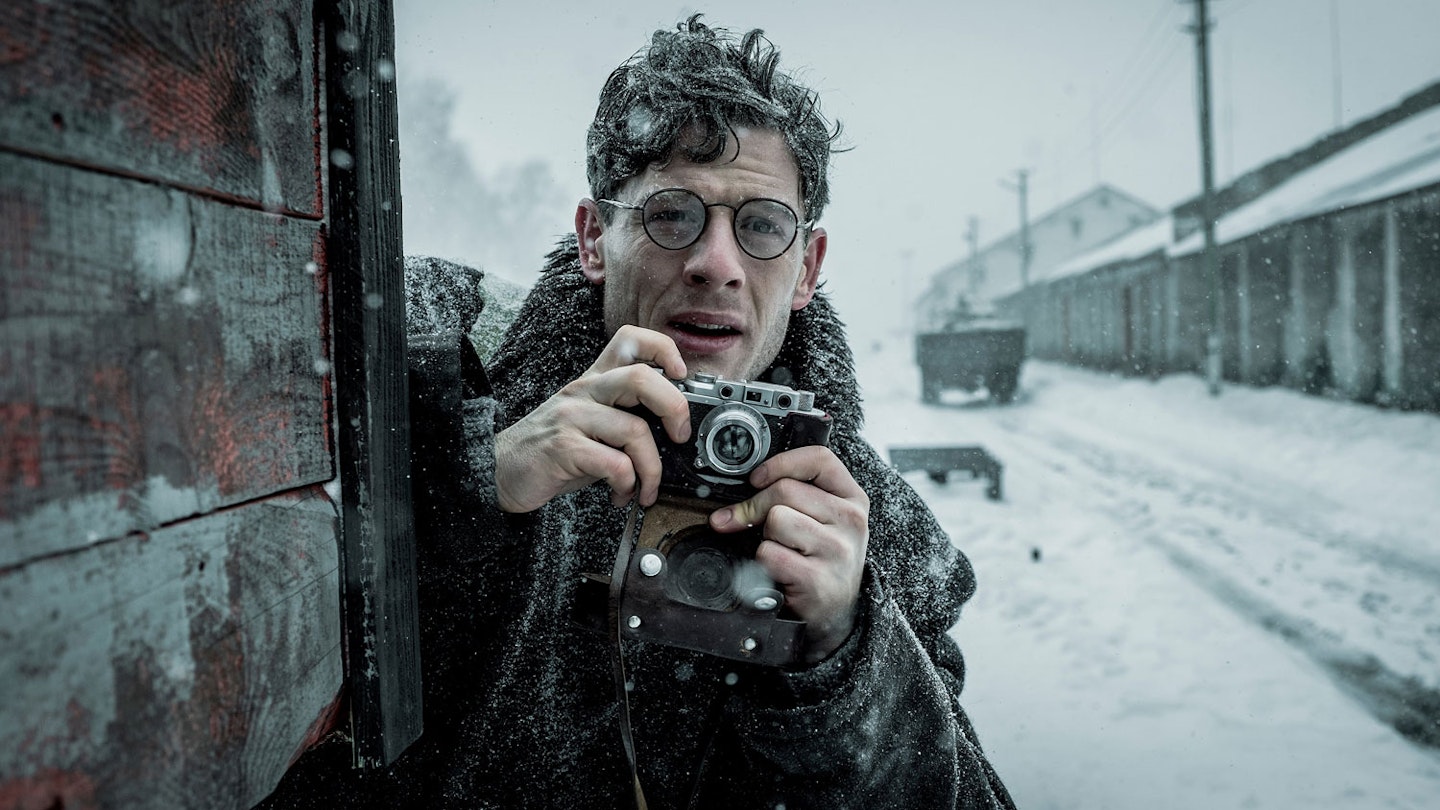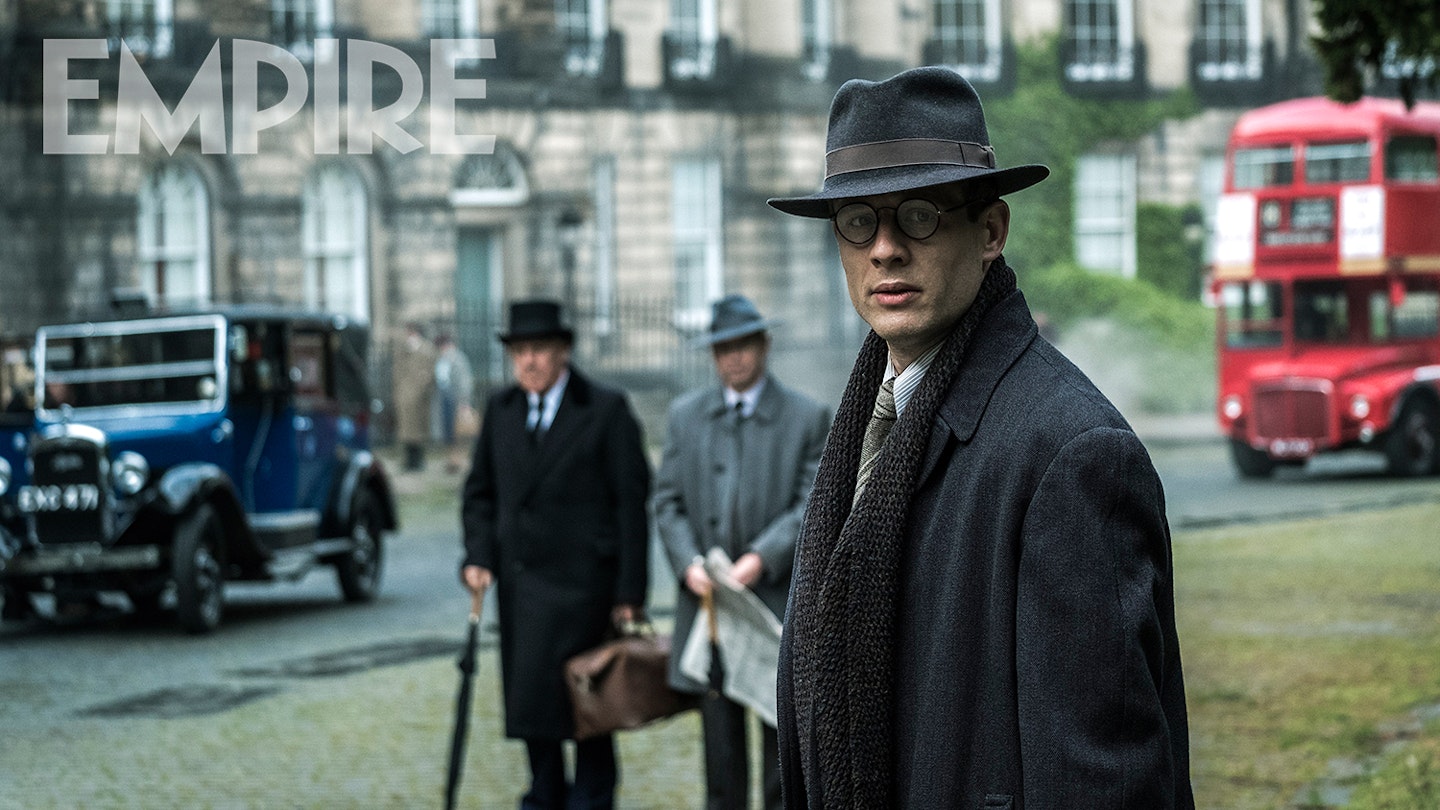The true story of Welsh journo Gareth Jones (a bespectacled James Norton — he’d make a great Clark Kent), who travelled to Russia to interview Stalin and ended up exposing a deadly government-engineered food shortage, Agnieszka Holland’s drama is unflinching and non-sentimental, a serious endeavour that never quite reaches the heights of her best work (Europa Europa, In Darkness). Instead, it’s an intermittently absorbing, lesser-known slice of history but without the juice to make it truly memorable.
It starts in 1933 when Jones, a Foreign Office worker who has just interviewed Adolf Hitler on a private jet and is convinced he presents a worldwide threat, is rebuffed by Prime Minister David Lloyd George (Kenneth Cranham) and his advisors as worrying unduly. Believing that the incredible growth of the Soviet economy and the noise around Stalin’s ideas of collectivisation pose equally threatening signs, Jones lobbies Lloyd George to send him to Russia to meet with the dictator — Jones is subsequently fired from his job.

It’s a slightly inert opening that picks up when Jones, not taking no for an answer, blags his way to Moscow and finds himself in the middle of a murder mystery — a journalist has been shot in the back — and a city characterised by a sense of danger and unease. Here the film develops distinctly Third Man vibes with colourful characters — Peter Sarsgaard’s hedonistic editor, who spends most of his running time without trousers; Vanessa Kirby’s cold femme fatale-y writer who confirms Jones’ suspicions — long shadows and noir-like angles.
Eventually Jones finds passage to the Ukraine (he is nearly mauled on the train for an orange) and the film segues into an engrossing, almost wordless section as the journalist tries to stay alive in the harsh landscape, fending off wolves, eating bark and possibly much worse. It’s strong, hard-hitting stuff — cinematographer Tomasz Naumiuk makes the imagery striking and the environment genuinely feel cold, a rarity in movies — and gives the film a compelling quality absent from the first half.
Drip-fed through the film are on-the-nose vignettes of George Orwell (Joseph Mawle) at a typewriter banging out Animal Farm (Jones’ findings fed into the writer’s creativity). Although some 15 years in the making, the story resonates with the notion of a journalist trying to cut through fake news, of reporting crimes and misdemeanours to an apathetic Establishment. It’s just a shame the film couldn’t find the spark to bring its important subject matter to life.

